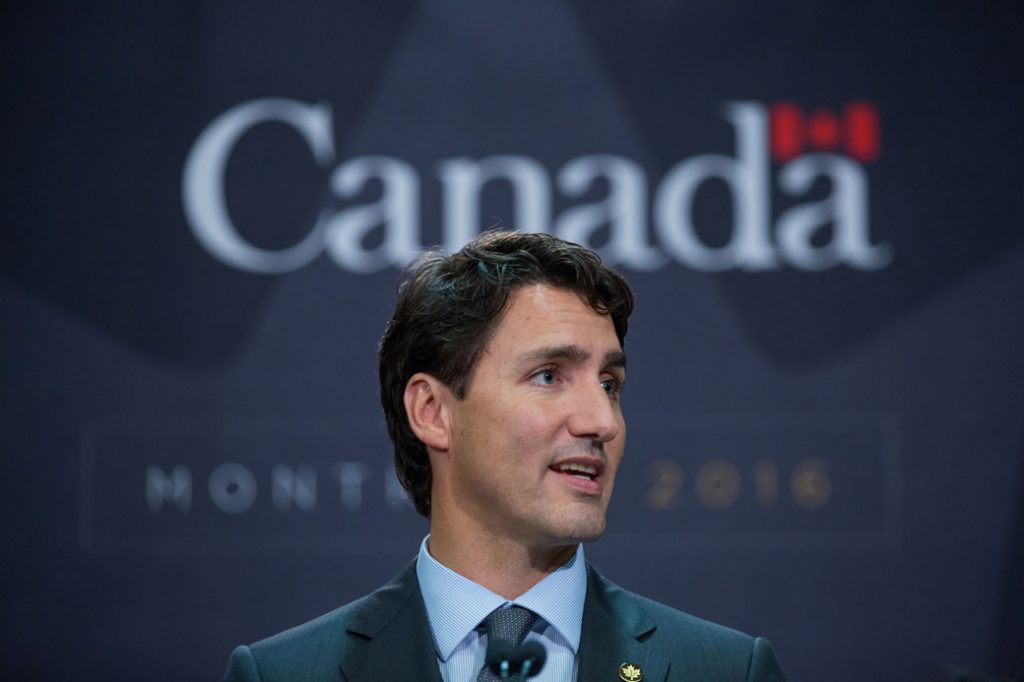
BY TYLER CHOI
“Sunny ways” were the first words spoken by Justin Trudeau as prime minister, and hopefully, the start of a reinvigorated Canada. Against the cynicism and opposition, Canadians remain bright towards Trudeau. An Ipsos survey released Oct. 18 states, “Two in three (64%) Canadians continue to approve (18% strongly/46% somewhat) of the performance of the Liberal government under the leadership of Justin Trudeau”. The notably impressive part of his approval is the 78 per cent support from the 18-34-age range.
The millennial and Gen Y stereotypes of institutional apathy and political inactiveness flew in the face of Trudeau. The 2015 election drew in 57.1 per cent of the 18-24-age range, compared to 38.8 per cent in the 2011 election, with 38 per cent choosing the Liberal Party. Under his leadership, Canada witnessed droves of youths politically energized unlike any other election in recent memory. Sunny ways remain, but do looming clouds threaten the peace?
Andrew Rogiokos, 21, a student at McMaster University, remains in the Trudeau camp. Initially attracted by the Stop Harper movement, he points to the stifling of scientific inquiry during the Conservative government and Harper’s comments towards burqas and hijabs as push factors towards a vote to the Liberals. “I didn’t think conservatism was the way forward given today’s trends toward automation – that might be my biggest concern,” Rogiokos adds.
On the fence before the election, Rogiokos was convinced from strategic voting and his belief Trudeau was a better figurehead than the NDP’s Tom Mulcair. Now looking at electoral reform as his primary concern, Rogiokos is glad to see the Liberals have placed it on the agenda, but worried about the speed. With electoral reform sidelined by Trudeau, Rogiokos says, “I hope he puts aside his own political fears aside to do something better for the country; something that he promised.”

Like Rogiokos, Jon Kerr, 21, a University of Waterloo student, voted for Trudeau because, “his platform and social component of his campaign generally appealed to me as opposed to Harper,” he says. Coming into the election as a youth voter, Kerr was most interested in Bill C-51, educational policies for university students, and the value of the Canadian dollar in the international economy. The university repayment program, tax relief for the middle class; the infrastructure plan and marijuana legalization were also key factors in Kerr’s vote. Unlike the 78 per cent of the 18-34-age bracket however, Kerr rates Trudeau’s first year as, “poor”.
Naming Trudeau as the prime minister who “made the least amount of changes in this first annum than any other prime minister,” he is disappointed in Trudeau’s failure to uphold platform promises. According to TrudeauMetre, a website tracking Trudeau’s electoral promises, Trudeau has yet to start 95 out of 219 of his promises (43 per cent) and broken 26 promises (12 per cent).
The youth were mobilized like never before under Trudeau, but the question now is whether the youth will rally consistently to his party. With 45 per cent of polled Canadians unable to name a single accomplishment of the Trudeau government, the clock may be ticking on the patience of the youth. Poised to become the most important voting bloc in the future, it may be high time for Trudeau to return the favour to those who voted him in.
